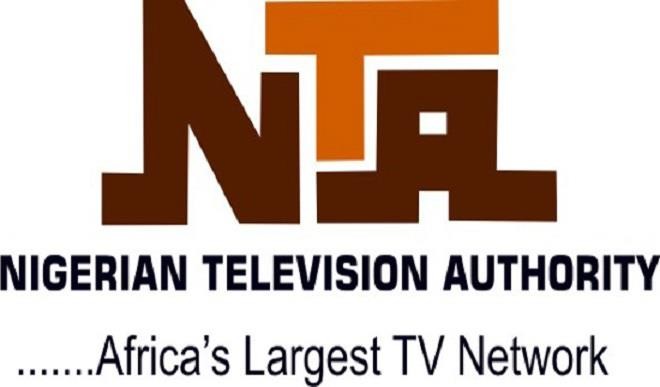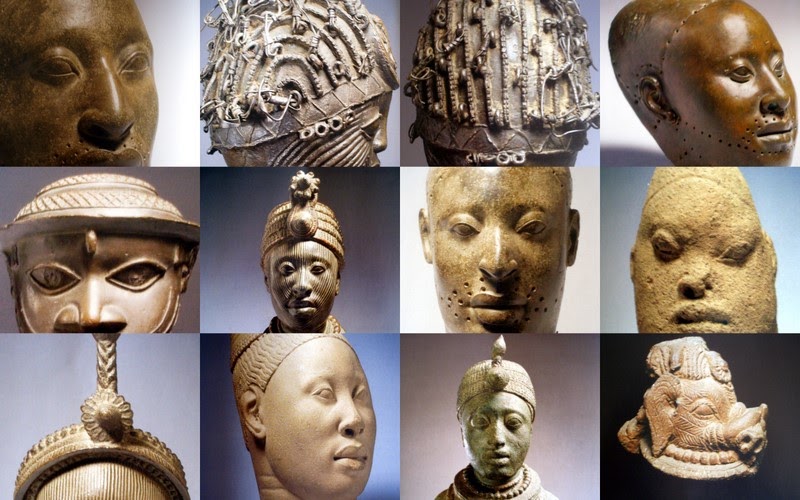The news media has always existed from time immemorial, from the gong beaters and town criers too, of course, word of mouth. Civilization then brought newspapers, radio and television.
The news media carries opinion and information on government, politics, fashion, religion, lifestyle and a host of other topics you can think about, thus influencing what we the news media consumers think about these topics. Before Nigeria had her own indigenous TV station, there was the British Broadcasting Corporation. In 1959, Chief Obafemi Awolowo established Nigeria’s first indigenous TV station in Ibadan called the Western Nigerian Television (WNTV). WNTV was not just the first TV station in Nigeria, it was the first TV station in Africa. It became possible for a region to establish a TV station when broadcasting was removed from the exclusive list and added to the concurrent list, therefore allowing regionals the right to establish an independent (from government’s control) broadcasting station. Armed with this freedom, the Western Region House Parliament passed an act that established the Western Nigerian Television (WNTV). While the establishment of the first TV station in Nigeria has some political underlining, the Western Region House Parliament argued that the primary aim for the establishment of the TV station was to complement the understaffed educational sector and increase literacy among her citizens. After the western region blazed the trail, the other regions followed suit, Eastern region in 1960 and Northern region in 1962. Each one entered into a partnership with a British broadcasting company called Rediffusion who supplied and installed their TV station equipment.
History and Background of Nigerian Television Authority

The Nigerian Television Authority – also known as NTA is a Nigerian government-owned and partly commercial broadcaster. At the inauguration, it had monopoly on television broadcasting in the country. The NTA runs the biggest television network in Nigeria with stations in several parts of Nigeria. Formerly known as Nigerian Television (NT), the network began with a takeover of regional television stations in 1976 by the then Nigerian military. authorities, and is widely viewed as the authentic voice of the Nigerian government. NTA’s monopoly was broken in the 1990s. Nigerian Television Authority began broadcasting on 31 October 1959 under the name Western Nigerian Government Broadcasting Corporation (WNTV) with Olapade Obisesan as its first Chairman. It was based in Ibadan and was the first television station in Tropical Africa. Other Northern parts of Africa already had a television station. NTA was later founded in 1977. By 1979, it had reached about 20% of the population.
The first chairman of NTV was Olapade Obisesan, a lawyer trained in the United Kingdom and son of Akinpelu Obisesan,, an Ibadan socialite and first President of Cooperative Bank, Nigeria. The first official director general was Vincent Maduka, a former engineer. Prior to his appointment, Maduka was General Manager of Western Nigeria Television, Ibadan, which was Africa’s first television station. The NTA has been criticized by performing artists such as Becky Umeh for pressuring artists to align their expression with government propaganda goals. The Guardian in its editorial of Sunday, October 18, 2009, stated: “The federal government-owned television network, the Nigeria Television Authority, (NTA) is arguably the largest of its type in Africa, but it is yet to have the operational freedom required to maximize its potentials”. However, the NTA’s monopoly on the Nigerian airspace was broken in the mid-1990s with the establishment of privately owned television stations and networks, notable among which is the Africa Independent Television.
Merged Stations
- March 1962 Radio-Television Kaduna / Radio Kaduna Television (RKTV) was established. It was based in Kaduna and was operated by the Broadcasting Company of Northern Nigeria. RKTV also provided coverage for the central northern states. Later in 1977, it was re-branded NTV-Kaduna.
- April 1962 The Nigerian Broadcasting Corporation (NBC) was established; it was a federal government-owned service. Based in the city of Lagos it broadcast to the southwestern states.
- 1972 MidWest TV was established as TV broadcaster at Port-Harcourt. This was run by the state government in Benin.
- 1974 Benue-Plateau Television Corporation (BPTV) was established and was based in Jos. It was the first television station to launch regular/permanent colour broadcasts in Africa. The colour test transmissions commenced 1 October 1975. BPTV was re-branded as NTV-Jos.
- From May 1977 all the state television broadcasters named above were merged and re-branded Nigerian Television (NTV) and are now owned by Nigerian Television Authority.
Programming
1977 – 1990: Network programming
Dramatic programming like serials and anthology series had existed sparingly in regional television stations before the advent of NTA in 1977, then the regional stations now local affiliates of NTA network had T.V. shows such as “Alawada” by Moses Olaiya on WNTV (later NTA Ibadan), Village Headmaster and Hotel de Jordan on NTA Benin. Apart from these few notable ones, there were little original content in dramatic series production during the 1970s. By 1980, when the new NTA network had taken over state-owned broadcasting stations in the country, there was a concerted effort to increase the level of local content. Since 1977, the network began giving support to the production of notable country-wide network programmes such as “Tales by Moonlight, Cock Crow at Dawn and Mirror in the sun”. In 1982, NTA Sokoto’s Station produced a drama, ” Moment of Truth” which won a prize at the fifth festival of the National Radio and Television Organizations of Africa held in Algiers. To cultivate interest in the broadcast of original content from Nigerian producers, the network set a ceiling of 20% broadcasting time to be allocated to foreign programming at a time when the cost of acquiring those programs was much less than the locally produced ones, an agriculture promotional drama partially sponsored by UBA and produced by Peter Igho who directed the award-winning Moment of Truth emerged as one of the first nationally televised drama series in Nigeria. Though produced by NTA, it did not last long before it was cancelled because of technical and production reasons. Then came “Acada campus” another short-lived show produced by Bode Sowande. These series reached majority of accessible people because NTA owned a monopoly on broadcasting in the country.
Beginning in the 1980s, a string of critically acclaimed soap operas were promoted on the network. The first was ” Wind Against My Soul” by Laolu Ogunniyi’s, then came ” For Better or Worse” and Lola Fani Kayode’s “Mirror in the Sun”. Mirror in the Sun was produced in 1983 and it was well acted with good cinematography but was pulled off the air after two years due to lack of financial support. From the mid-1980s another group of soap operas dominated the airwaves, including the short-lived “Behind the Clouds and Turning Wheels”. In 1984, NTA began televising “Tales by Moonlight” a children’s programme that narrates traditional African folktales. The network also showed Adelia Onyedibia’s adaptation of Chinua Achebe’s “Things Fall Apart” in 1986. The network also promoted notable comedy series during this period such as “New Masquerade and Ken Saro, Wiwa’s Basi and Company”. One of the earliest network comedies was House no.13 in (1984) starring Wale Ogunyemi, the show was a situational comedy that satirized the social and urban lifestyle of Nigerians. Then followed Basi and Company in 1985, a critically acclaimed comedy series starring Albert Egbe. Village Headmaster, Koko close and Samanja were a trio of series spoken in pidgin English that was transmitted nationwide.
1990’s: Partial commercialization
Under the Structural adjustment program initiated by the Babangida administration, NTA had to commercialize some of its time slots in a bid to move away from public broadcasting towards a partially commercial broadcasting network. This led sponsored and brokered religious programs and live transmission of weddings and funeral services on the network. However, NTA continued with showing acclaimed soap operas such as “Mind Bending” by Lola Fani Kayode, Ripples by Zeb Ejiro and Checkmate by Amaka Igwe. Ripples which started in 1988 became the network’s longest running soap operas before it exited the stage in 1993. Checkmate my Amaka Igwe starring Richard Mofe Damijo, Bob-Manuel Udokwu, Ego Boyo, Kunle Bamtefa and Mildred Iweka launched the career of many celebrities. Following the exit of both the successful Ripples and Checkmate, NTA promoted the shows Blossom and Fortunes, but the two could not hold on to the viewership of its predecessors. However, it was also a time that NTA which previously had a monopoly over the airwaves now faced competition from new entrants such as AIT. To compete, the network introduced into Primetime, Latin American telenovelas such as The Rich also Cry, Secrets of the sand and Wild Rose Children’s or instructional programming usually aired at 06.30 PM – 07.00 PM. Shows included Fun time, Readers club, Work it Out, and Take a Step. In 1999, the network introduced breakfast television with A.M. Express.
News
News programming was the bedrock of NTA as the government plan to forge national unity. The new NTA network made sure news presenters not only read prepared scripts but were part of the newsgathering team and because many of the pioneer news writers came from print journalism, it made sure writers understood the importance of writing for visual presentation. The broadcaster introduced a new line of newscasters and reporters such as Ronke Ayuba, John Momoh, Cyril Stober, Bimbo Oloyede, Ruth Opia, Sienne Allwell-Brown and Sola Omole. Specialized news programmes such as Frank Olise News line were also introduced. The major news programmes at NTA were the Network News at Nine, a five-minutes News in brief at 5.00 P.M., and a fifteen minutes News recap at 11.00 P.M. In the 1990’s NTA joined other state-owned stations to commercialize some aspects of news reporting. These stories include festivals, social events, cultural activities and business activities that are included in the news or as part of a news programme on the basis of payment.
Programming

Today, mandatory network programming dominates the airtime of most local NTA stations. The local stations have a choice to pick local broadcasting time from a specific time range. During the daytime, magazine shows such as A.M. Express later renamed Good Morning Nigeria airs for 2½-hours from 06.30 am till 9 am Monday-Friday but other programs air once or twice weekly. Network dramas such as Super Story and Stand Up Nigeria are usually given the Tuesday and Thursday 8.00 pm slot. Notable sports programs include On the Pitch on Mondays. NTA which previously had some original children’s programme formed a partnership with to broadcast programs during its 5 pm to 7 pm time slot for children and instructional television.
Network news
NTA’s news directorate is mostly geared towards reporting government activities. The major news production is the Network News an hour long programme that airs at 9:00 pm every Monday-Friday except on Wednesdays which airs a version called News Extra. The Network News usually starts with news from the presidency, then the National Assembly followed by ministries and state governments Other news productions include the News at 7 and Nationwide news at 4 pm. Coverage of events dominates most of the news programs and investigative reporting and human stories are usually subordinate to covering government activities with the exception of News Line that airs on Sunday evenings. The 9 pm news generates one the networks largest advertising rates for 30-second spots Paid news segments such as ‘News of Special Interest’ are inserted to network broadcast news such as News line or the 9 pm network news. Other notable news productions include Panorama, One o’ Clock Live, Inside the Senate and You and Your Rep.
NTA Branches and Network Centres

As of 2014, NTA had 101 stations in state capitals and towns of Nigeria, out of those stations are nine network centres. The networks are mostly the early stations in Nigeria, the NTA stations at Ibadan, Jos, Enugu, Kaduna, Lagos, Benin, Makurdi, Maiduguri and Sokoto
- NTA Aba
- NTA Abeokuta
- NTA Abuja
- NTA Plus Abuja
- NTA Ado-Ekiti
- NTA Akure
- NTA Asaba
- NTA Akwa
- NTA Bauchi
- NTA Benin
- NTA Birnin-kebbi
- NTA Calabar
- NTA Damaturu
- NTA Duste
- NTA Enugu
- NTA Gombe
- NTA Gusau
- NTA Ibadan
- NTA Ife
- NTA Ijebu-Ode
- NTA Ilorin
- NTA International
- NTA Jalingo
- NTA Jos
- NTA Kaduna
- NTA Kano
- NTA Kastina
- NTA 2 Channel 5 Lagos
- NTA Channel 10 Lagos
- NTA Lafia
- NTA Lokoja
- NTA Maiduguri
- NTA Makurdi
- NTA Minna
- NTA Ondo
- NTA Osogbo
- NTA Owerri
- NTA Port-Harcourt
- NTA Sokoto
- NTA Uyo
- NTA Yenagoa
- NTA Yola
- NTA Sapele
- NTA Education
- NTA Sports
Crisis
NTA is partially funded through government subvention and has had credibility problems as a result of interference in content by the government and politicians. Instances of interference from government sometimes diminished the professionalism of newscasters In addition the proliferation of NTA stations in every state capital tends to be more about politics and could stretch the capabilities and resources of the NTA network. Another problem is criticism of the television network by some sectors of the public who feel that the technology used in broadcasting is not quite up to par with foreign broadcasters.
Related services
NTA has a digital Pay TV service called Startimes established in 2010, it is a partnership with Star Communications Technology of China. Additional NTA channels with the provider include NTA Yoruba, NTA Ibo, NTA Hausa, NTA Sports 24 and NTA Parliamentary Channel.
International broadcast
A number of NTA programmes can be viewed online via Africast as well as TelAfric Television (US & Canada). NTA News bulletins are frequently aired on Africa Independent Television, and BEN Television in the United Kingdom. The station was made available through Sky. In the UK on channel 202, but in early March 2010, they refused to make their channel pay-per-view on Sky. The next day the channel was removed from the Sky EPG. It is also on the IPTV platform SuncasTV, and via free-to-air satellite on Galaxy 19, Intelsat 905 and Intelsat 50.







